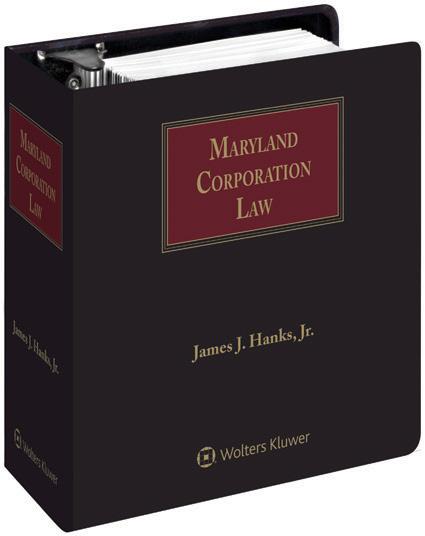

Can Maryland Revolutionize the Office of Public Defenders with Social Workers as Legal Paraprofessionals?
BY SHAUNTIA’ D. WHITE, LMSW, MS

WITH MARYLAND’S PUBLIC DEFENSE SYSTEM grappling with staffing shortages, growing caseloads, and persistent inequities, a bold question emerges: Could the state revolutionize its Office of the Public Defender (OPD) by integrating legal paraprofessionals (LPs)—trained, licensed, and rooted in community expertise—into the front lines of representation? As of 2023, Maryland’s public defenders were handling over 25,000 felony cases annually, often under conditions that exceed recommended caseload limits and stretch resources thin.1 This article explores how interdisciplinary approaches—particularly those bridging law and social work—could help address accessto-justice challenges while reimagining the traditional boundaries of legal practice.
Understanding LPs and the Risks of Their Implementation LPs—analogous to Nurse Practitioners (NPs) in the medical field—are credentialed professionals with specialized education and experience, authorized to provide legal services within a defined scope of practice. Their integration into Maryland’s legal system could substantially expand access to justice, particularly for underserved communities. LPs could potentially handle specific areas of law such as family law, landlord-tenant disputes, and debt collection, with potential for further expansion into limited
jurisdiction civil matters, criminal law, juvenile court, and state administrative law. Maryland has the opportunity to model its LP framework after Arizona’s successful integration, rather than following the more limited models seen in states like Texas, or the nascent programs in Washington, D.C. This approach would allow Maryland to build on a proven, comprehensive model, unlike the more restrictive or underdeveloped frameworks in other states such as Colorado, Minnesota, New Hampshire, Oregon, and Utah.
As LPs are granted increasing autonomy without a robust accountability framework, concerns arise regarding the long-term risk of legal missteps, particularly when working with historically marginalized communities.
To gain a deeper understanding of the potential and challenges inherent in the role of LPs, it is useful to draw parallels with healthcare paraprofessionals—specifically NPs and physician assistants (PAs). In healthcare, NPs and PAs have long been recognized as essential extensions of clinical practice, taking on roles traditionally reserved for physicians, such as diagnosing conditions, prescribing treatments, and educating patients, to address nationwide shortages. These duties are typically carried out within a structured framework of physician oversight or collaboration. Yet, there is little empirical evidence examining whether LPs, granted similar professional autonomy, face comparable risks of legal missteps as NPs or PAs, particularly when serving vulnerable populations.
In a 2020 article, Opioid Prescribing by Primary Care Providers: a Cross-Sectional Analysis of Nurse Practitioner, Physician Assistant, and Physician Prescribing Patterns, authors found that allowing NPs and PAs to prescribe opioids or perform surgeries without sufficient oversight may increase the risk of overprescribing or inadequate care. When examining 222,689 primary care providers, 3.8% of MDs, 8.0% of NPs, and 9.0% of PAs met at least one definition of overprescribing. Additionally, 1.3% of MDs, 6.3% of NPs, and 8.8% of PAs prescribed opioids to at least 50% of their patients. Notably, NPs and PAs practicing in states with independent prescribing authority were 20 times more likely to overprescribe opioids than their counterparts in prescription-restricted states.2
A related study exploring opioid prescribing in primary care found that patients more likely to receive chronic opioids were female, Black or African American, and had comorbidities such as mental health diagnoses, substance use disorders, or
concurrent benzodiazepine use. Medical providers also reported challenges in weaning stable long-term patients off opioids due to limited non-opioid alternatives and concerns about clinical justification.3 As LPs are granted increasing autonomy without a robust accountability framework, concerns arise regarding the long-term risk of legal missteps, particularly when working with historically marginalized communities. Arizona’s LP framework, which integrates non-lawyers into legal practice, provides a model for expanding access to justice while maintaining structural and institutional accountability. However, Maryland’s greater racial and ethnic diversity, along with the more pronounced racial disparities and attorney shortages within its OPD, presents unique challenges. 4
Maryland’s Public Defender’s 2024 Report and the Potential Role of LPs
Maryland’s OPD system is facing a critical attorney shortage, with only 409.5 assistant public defenders assigned to adult criminal practice statewide, falling short of the 956.5 attorneys needed to meet national standards. This deficit is particularly alarming given the recent surge in serious criminal cases. In fiscal year 2024 alone, Maryland’s adult criminal caseload increased by over 2,000 cases, with homicide cases rising nearly 20%. The backlog has stretched both district and circuit courts beyond capacity, with many cases lingering unresolved from previous years. These systemic challenges are compounded by persistent racial disparities: African Americans comprise 32% of the state’s prison population despite making up just 31% of Maryland’s residents. Communities of color are disproportionately affected by serious offenses, further highlighting the need for targeted, equitable reforms.
To fulfill its constitutional and ethical obligations, the question remains: should Maryland consider adopting a forward-thinking approach akin to Arizona’s, embracing innovative strategies to fortify and modernize its public defense infrastructure? One promising approach that no other state has taken is integrating social workers as LPs within the public defender system, particularly in criminal law, where underlying social factors such as mental illness, substance use, and housing instability often shape legal outcomes. LPs, trained to handle specific legal tasks under attorney supervision, could relieve pressure on public defenders by drafting motions and responses, interviewing witnesses, handling discovery and redactions, conducting legal research, providing procedural support, and enhancing efficiency in lower-level cases. When embedded in defense teams, LPs can contribute to improving client engagement, ensuring timely representation, and addressing the underlying factors that contribute to justice system involvement.
2 Lozada, M.J., Raji, M.A., Goodwin, J.S. et al. Opioid Prescribing by Primary Care Providers: a Cross-Sectional Analysis of Nurse Practitioner, Physician Assistant, and Physician Prescribing Patterns. J GEN INTERN MED 35, 2584–2592 (2020). https://doi.org/10.1007/s11606-020-05823-0.
3 Tong, S. T., Hochheimer, C. J., Brooks, E. M., Sabo, R. T., Jiang, V., Day, T., Rozman, J. S., Kashiri, P. L., & Krist, A. H. (2019). Opioid prescribing by primary care clinicians in the United States: A cross-sectional study. The Annals of Family Medicine, 17(3), 200-206. https://doi.org/10.1370/afm.2357.
4 A state more racially and ethnically diverse than Arizona, Maryland has greater racial disparities in the criminal justice system compared to Arizona, with African Americans comprising 32% of Maryland’s prison population despite being only 31% of the state’s overall population, while in Arizona, African Americans make up 16% of the prison population despite being only 5.5% of the state’s total population. This indicates that Maryland’s criminal defense system is under significant strain, with a rise in serious cases like homicides and sex offenses, which disproportionately affect communities of color, highlighting the broader racial disparities within the justice system.
Maryland’s OPD system is facing a critical attorney shortage, with only 409.5 assistant public defenders assigned to adult criminal practice statewide, falling short of the 956.5 attorneys needed to meet national standards.
How Can OPD Benefit from Social Workers as LPs?
The 2024 Maryland OPD report highlights a critical staffing shortfall, with only 29 social workers to assist over 550 attorneys—a far cry from the national standard ratio of one social worker for every eight attorneys. This staffing gap has hindered the ability to provide adequate services, especially in district courts where individuals with behavioral health issues may face repeated cycles of arrest and incarceration due to a lack of appropriate intervention.
As the report suggests, integrating social workers as LPs could directly address this issue by providing critical support to marginalized populations and those at risk of recidivism. In 2020, the American Bar Association reported that 60% of low-income individuals facing legal problems also experience non-legal barriers, such as mental health challenges, housing instability, and lack of access to basic resources–factors that often hinder clients’ ability to engage effectively in legal proceedings, leading to in missed court dates, noncompliance, or poor decision-making. Similarly, a study by the Urban Institute in 2019 found that clients who received both legal and social services were 35% more likely to achieve positive legal outcomes than those who received only legal assistance. Further supporting this holistic approach, the Legal Services Corporation’s 2022 report revealed that
clients receiving integrated legal and social support were 50% less likely to face recurring legal issues within a year. These findings highlight the critical role of addressing social determinants of health in improving legal outcomes and more effective access to justice.
In addition to assisting with case management, behavioral health assessments, and linking defendants to treatment programs at the micro level, their LP distinction could also improve long-term outcomes for defendants while alleviating some of the pressure on public defenders handling heavy caseloads. In Maryland, where the OPD managed over 128,000 criminal cases in FY2024, the role of macro social workers serving as LPs can also contribute to the criminal defense process: (1) providing consultation and legal advice; (2) representation in court; (3) document preparation; (4) investigation and case preparation; (5) client advocacy and support; and (6) collaboration with attorneys.56
Moving forward, broadly speaking, the implementation of Arizona’s model in Maryland could significantly improve outcomes for vulnerable populations while strengthening the integrity of the criminal justice system across the state of Maryland.
Expanding the Role of LPs in Public Defense: A Path to Integration Although paralegals have traditionally been viewed as the next tier of support
5 Arizona Judicial Branch. (n.d.). Legal paraprofessional program. https://www.azcourts.gov/cld/LegalParaprofessional.
6 LPs in Arizona with a criminal law endorsement can represent clients in a range of misdemeanor cases only if incarceration is not at issue, including eligible charges such as simple cannabis possession, possession of paraphernalia, disorderly conduct, low-level domestic violence offenses (when prosecutors and courts agree to no jail time), trespass, threats, criminal damage, shoplifting under the legal threshold, misdemeanor assault, and in some cases, driving on a suspended license—but they may not represent clients in felonies or misdemeanors where jail time is possible, such as possession with intent to sell, domestic violence involving injuries or weapons, or repeat DV offenses (Arizona Judicial Branch., n.d.)

within the legal profession, a critical question emerges: Should Maryland’s Office of the Public Defender lead the nation in expanding this paradigm to formally include social workers as LPs, thereby advancing a more holistic and interdisciplinary model of client advocacy? While not necessarily a universally accepted solution, this approach could serve as a strategically significant measure to mitigate staffing shortages and respond to the mounting demands placed on public defense services. Despite its potential, the state has yet to establish a comprehensive framework for systematically integrating nonlawyer service providers into such roles, both within OPD and across the broader legal system—a foundational step toward realizing more innovative, interdisciplinary models of legal service delivery.
Notably, Maryland’s OPD currently faces a shortfall of 196 social workers to meet national benchmarks, highlighting the urgency of expanding their roles within the criminal defense system. Such integration could dramatically improve the quality of legal representation, particularly for vulnerable populations grappling with behavioral health challenges. If social workers, when embedded in defense teams, bring both the tools and insight necessary to foster a more compassionate and equitable justice system, then one must ask: What systemic barriers continue to hinder the full integration of social workers into the front lines of criminal defense, and how might we design pathways to overcome them and institutionalize new legal tiers in Maryland’s legal systems?

Shauntia White, LMSW, MS, is a licensed social worker in Maryland and Arizona who was appointed by Arizona Supreme Court Chief Justice Ann A. Scott Timmer to serve on the Board of Nonlawyer Legal Service Providers. White is one class away from completing a Master of Legal Studies with a concentration in Legal Paraprofessional Studies (Criminal Law Track) at the University of Arizona’s James E. Rogers College of Law, after which she will sit for the Legal Paraprofessional licensing exam through the State Bar of Arizona.
Wolters Kluwer Legal & Regulatory U.S. Proudly Announces the Latest Supplement of Maryland Corporation Law
by James J. Hanks, Jr., Senior Counsel, Venable LLP
Celebrating 35 Years of Publication!

Maryland Corporation Law, including 2024 Supplement, #10086770-7777.
Cited by Judges and Lawyers in Maryland and Elsewhere
Maryland Corporation Law is the first fulllength treatise on Maryland corporation law in more than 70 years. Since then, there has been a complete recodification of the Maryland corporation statutes, dozens of other statutory amendments, and many important cases decided by Maryland and other courts applying Maryland law. Maryland Corporation Law is the first and only work to survey all of these developments.
Written by one of Maryland’s most respected and experienced corporation lawyers, Maryland Corporation Law is based on the most thorough research ever undertaken for a book on this subject. Every volume of the Maryland Reports and Maryland Appellate Reports — as well as many other sources — was reviewed page by page to discover all cases dealing with Maryland corporation law issues since 1658.
The book contains many easy-to-use forms, including articles of incorporation, bylaws, organizational and other minutes, board and stockholder resolutions, articles of merger, articles of amendment, articles of transfer, and articles of dissolution. All are specific to Maryland. This Supplement also includes the author’s analysis of recent statutory and case law developments.
“The leading commentator on Maryland corporation law”
Judge Robert W. Sweet
United States District Court for the Southern District of New York
“Scholarly, authoritative and practical ... the next best thing to a unanimous Supreme Court of Maryland decision!”
Max
Stul Oppenheimer
Professor of
Law,
University
of Baltimore School of Law
To order call 800-234-1660 or visit WoltersKluwerLR.com/store
